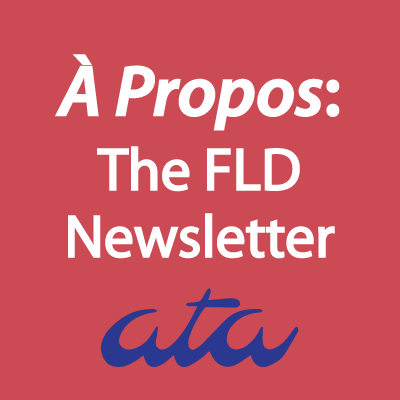 I am not someone who has a natural inclination to read graphic novels. The first one I read, at the urging of a book group, was Persepolis by Marjane Satrapi. I thought it was a fascinating peek into what it was like to grow up in Iran and it made me realize that graphic novels can indeed be literary endeavors. This particular genre is a revered form of expression within Francophone culture so I am in good company. My most recent foray into the world of graphic novels was to read Riad Sattouf’s L’arabe du futur : une jeunesse au Moyen-Orient (1978-1984) by Allary Éditions, the subject of this article.
I am not someone who has a natural inclination to read graphic novels. The first one I read, at the urging of a book group, was Persepolis by Marjane Satrapi. I thought it was a fascinating peek into what it was like to grow up in Iran and it made me realize that graphic novels can indeed be literary endeavors. This particular genre is a revered form of expression within Francophone culture so I am in good company. My most recent foray into the world of graphic novels was to read Riad Sattouf’s L’arabe du futur : une jeunesse au Moyen-Orient (1978-1984) by Allary Éditions, the subject of this article.
Sattouf, who has published various autobiographical and fictional works to acclaim and worked as a cartoonist for both Charlie Hebdo and Le Nouvel Observateur, was born to a French mother and Syrian father. His graphic memoir covers, as the title notes, Sattouf’s first years of life, from 1978-1984 when the family lived very briefly in Paris as well as their time in Libya and Syria, his father’s homeland.
Sattouf’s mother comes across as a sympathetic figure but is not as fully developed as the character of his father. I often marveled at her ability to put up with the rudimentary conditions in which they were forced to live and while she seemed to do so without complaint for the most part, this is not to say that Sattouf portrays her as a pushover. She is surely a product of her era and her experiences living in lands so different from France, her country of origin. At times we see her stand up for herself, her family and her European values while still being mindful of the cultures in which finds herself (Libyan and Syrian). The author’s admiration for his mother and her ability to adapt is evident in his work. Her steadfast respect for herself and her children from a European perspective make me curious to read Sattouf’s next volumes in the series (there are three in total) to see how her relationship with her strong-minded husband evolves.
This first volume of Sattouf’s memoir is as much about his father as about himself. His father is always in search of a “better” life for himself, where he will receive the “recognition he deserves.” As the story begins, Abdel, Sattouf’s father, has recently received his doctorate in history from the Sorbonne. To put it to good use, he uproots the family, leaving France to accept a low-paying, low-prestige teaching position in Libya. He is a pan-Arabist whose sometimes inconsistent philosophy of life revolves around what Sattouf portrays as Abdel’s obsession with the Arab way of life getting the respect it deserves.
While Sattouf approaches his story with humor and makes us laugh at times, his frankness about the harshness to which he was sometimes subjected as a child can make us cringe. We learn about his bicultural experience through his personal perspective. As someone who is the product of a very different bicultural lifestyle, I found this fascinating and I am anxious to read the next two volumes in his autobiographical series.
Eve Lindemuth Bodeux
Eve Lindemuth Bodeux is a French to English translator and independent project manager who lives in Denver, CO.